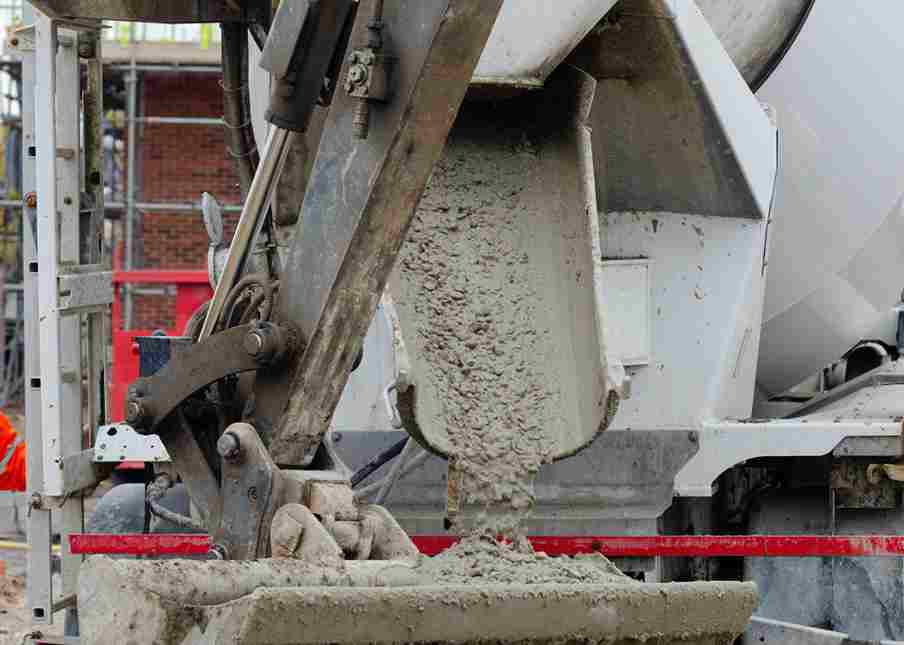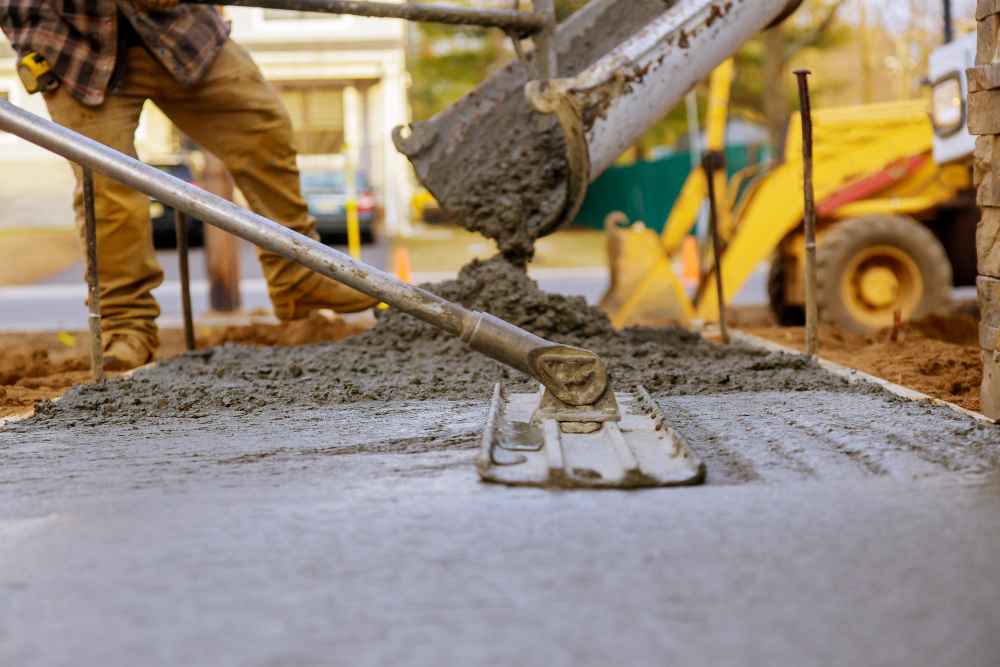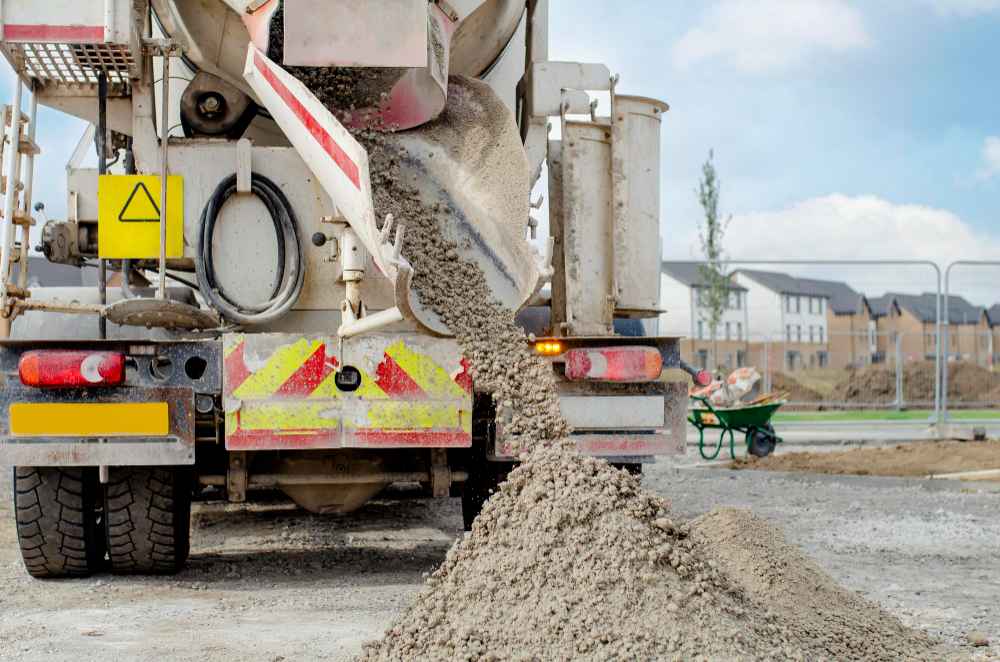Construction comes with a load of burden, stress and inconveniences! From selecting the best concrete providers to concrete pouring at the construction site, it’s a challenging ride. However, some companies like Ready Mix Concrete are there to make the whole process easy for you!
Suppose you are starting a mega construction project, building your dream home, or any commercial project. In that case, this blog may be your saviour. Read the blog to learn about concrete pumps, their types and advantages and how to get the best contractor.
A concrete pump comes with efficiency and reliability, doing the work of many labourers single-handedly. It is a pump connected to the concrete mixer to safely transfer and pour the concrete mix to the desirable distance and height at a construction site.
Concrete pumps are a safe and reliable option for mega and high-rise projects where safely transferring the concrete is a big challenge. They also have their applications in small domestic projects or home refurbishments like adding a swimming pool in your backyard or simply building patios in your home.
Concrete pumps use pipelines with a diameter ranging from 100 mm to 180 mm, with 125mm being the favoured option. They can reach heights of up to 500M and 2000M of horizontal distance. The output range of these pumps is 19m3-150 m3 per hour depending on various factors like length of vertical and horizontal pipes, length and diameter of hose and coherence of concrete.

Concrete pumps have two types: lines and boom concrete pumps.
As apparent from its name, the line concrete pump has a big flexible hose from which the concrete flows at high pressure to reach the maximum distance. The hose is laid at the ground level, and concrete is poured. The pipes can be moved to ensure the concrete reaches every inaccessible spot, making them a highly versatile option.
Unlike line concrete pumps, a boom concrete pump has a crane-like hydraulic arm that helps to reach different heights. Being remote-controlled, you can easily control the arm’s movement, making it highly flexible for great heights. Once started, the pump draws the concrete vertically to the desired location at a tremendous pressure.
Both types have differences but also share similarities in terms of configurations. Both pumps can be truck-mounted and trailer-mounted, making their transportation easy and offering immense flexibility to reach difficult areas while concrete pouring. They can also be used as stationary pumps by removing wheels to make them static in their place, providing additional stability for projects that require continuous pumped concrete over long distances and heights.

A concrete pump has myriad benefits, making it a popular option among builders and owners for safely transferring concrete. Here are a few reasons why hiring a concrete pump can benefit you.
Often, concrete has to be poured at congested places or heightened places that put the safety of the labourers at risk. Manual transferring of concrete can cause many physical issues in muscles and may cause strains, muscle spasms even fractures due to heavy loads.. Automating transferring through concrete pumps reduces the safety risks to a minimum.
Manual transfer requires a lot of workforce and burrowheels that create much mess at the work site and sometimes unnecessary work delays, which slow downs the process, ultimately crossing the project completion deadlines. With concrete pumps, it’s the opposite!
With a concrete pump, there’s minimum concrete wastage and maximum work efficiency. It also avoids any concrete spillage.
A Concrete pump has a greater reach than traditional methods for concrete pouring. It can reach almost all heights and inaccessible areas for smooth concrete pouring. It comes in different sizes depending on the project’s scale and is cost-effective.
They offer controlled pressure and speed with which the concrete is being poured. The operators also control the hose’s reach to ensure the concrete reaches every last corner. Such a controlled pouring gives a sturdy and smooth end finish.
Unlike traditional methods of concrete pouring, a concrete pump offers the uniform consistency of concrete that is vital to ensure the strength of the structure and reduces the chances of weak spots or air pockets.

If you are looking for experienced experts for ready-mix concrete and its transfer using a concrete pump, consider hiring Ready Mix Concrete in London and check out our work and customer reviews on our website.
A boom pump uses a robotic arm (boom) to deliver concrete with precision at height or distance, making it ideal for large-scale and high-rise projects. A line pump, on the other hand, is better suited for smaller, ground-level jobs and uses flexible hoses to deliver concrete. We offer both types depending on your project requirements.
With a boom pump, concrete can be pumped up to 70 metres vertically and over 200 metres horizontally. Line pumps can reach around 150 metres horizontally, depending on the setup and hose diameter. Our experts will assess your site and recommend the best solution to reach even the most challenging locations.
Yes, it’s important to ensure the site is accessible, level, and free from obstructions. There should be enough space for the pump vehicle to park and operate safely. If you’re unsure about access or clearance, our team can provide advice or arrange a pre-site visit.
The duration of a concrete pumping job depends on the volume and complexity of the pour. In general, a typical residential pour can be completed in under two hours. Our efficient service aims to minimise downtime and keep your construction project on schedule.
Yes, concrete pumps can operate in light rain and mild weather conditions, but heavy rain, high winds, or frozen ground may delay or halt operations for safety reasons. We always monitor the forecast and keep you informed of any possible schedule changes.
Yes, all our pump hires include a trained and experienced operator who will handle the equipment and ensure concrete is placed efficiently and safely. They’ll also help guide you through the process on-site, ensuring a smooth pour every time.
Ready Mix Concrete London (Trading as Pro-Mix Concrete Ltd)
Copyright © 2025 | Ready Mix Concrete London (Trading as Pro-Mix Concrete Ltd) | All Rights Reserved.